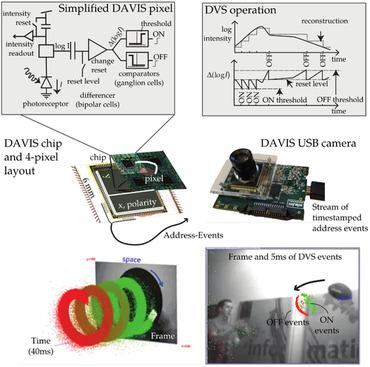Search Results for author: Alexander Hadjiivanov
Found 6 papers, 2 papers with code
On the Generation of a Synthetic Event-Based Vision Dataset for Navigation and Landing
1 code implementation • 1 Aug 2023 • Loïc J. Azzalini, Emmanuel Blazquez, Alexander Hadjiivanov, Gabriele Meoni, Dario Izzo
We anticipate that novel event-based vision datasets can be generated using this pipeline to support various spacecraft pose reconstruction problems given events as input, and we hope that the proposed methodology would attract the attention of researchers working at the intersection of neuromorphic vision and guidance navigation and control.
Neuromorphic Computing and Sensing in Space
no code implementations • 10 Dec 2022 • Dario Izzo, Alexander Hadjiivanov, Dominik Dold, Gabriele Meoni, Emmanuel Blazquez
The term ``neuromorphic'' refers to systems that are closely resembling the architecture and/or the dynamics of biological neural networks.
Continuous Learning and Adaptation with Membrane Potential and Activation Threshold Homeostasis
no code implementations • 22 Apr 2021 • Alexander Hadjiivanov
Most classical (non-spiking) neural network models disregard internal neuron dynamics and treat neurons as simple input integrators.
Epigenetic evolution of deep convolutional models
1 code implementation • 12 Apr 2021 • Alexander Hadjiivanov, Alan Blair
In this study, we build upon a previously proposed neuroevolution framework to evolve deep convolutional models.
Adaptive conversion of real-valued input into spike trains
no code implementations • 12 Apr 2021 • Alexander Hadjiivanov
Another merit of the proposed method is that it requires only one input neuron per variable, rather than an entire population of neurons as in the case of the commonly used conversion method based on Gaussian receptive fields.
Complexity-based speciation and genotype representation for neuroevolution
no code implementations • 11 Oct 2020 • Alexander Hadjiivanov, Alan Blair
This paper introduces a speciation principle for neuroevolution where evolving networks are grouped into species based on the number of hidden neurons, which is indicative of the complexity of the search space.


